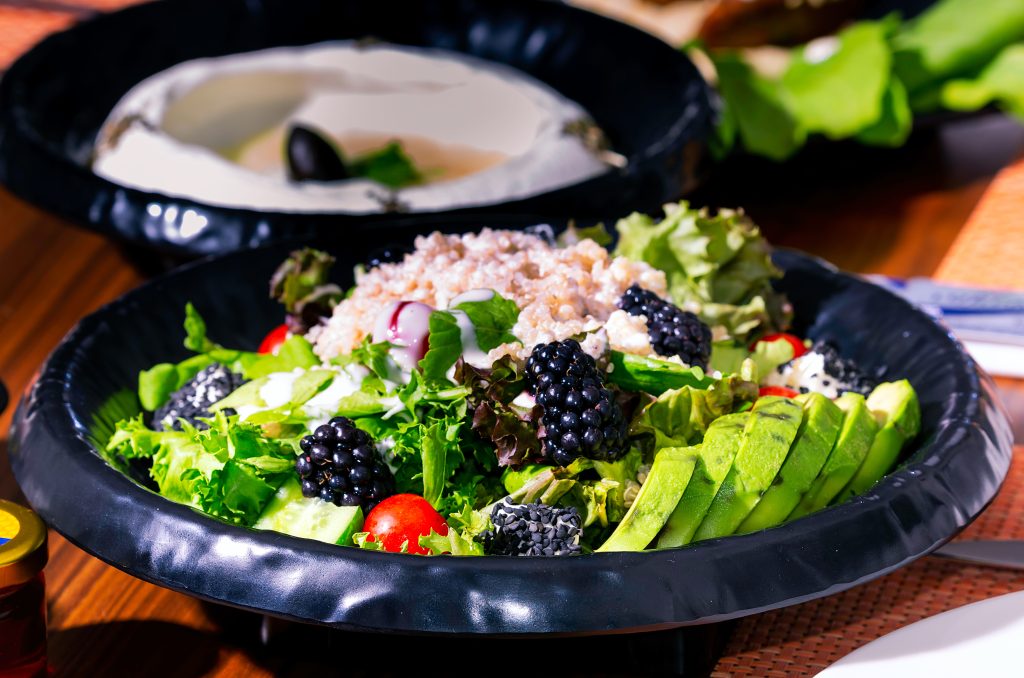Discover the numerous benefits of adopting a vegetarian diet to manage high blood pressure.
Exploring the Benefits of Vegetarianism for High Blood Pressure
Are you tired of feeling like your blood pressure is on a never-ending rollercoaster ride? Well, there may be a veggie-powered solution waiting for you! In this article, we’ll dive into the tantalizing world of vegetarianism, uncovering its potential benefits for high blood pressure. Prepare yourself for an adventure filled with knowledge, nutrition, and perhaps even a few surprises along the way.
Understanding High Blood Pressure

If you’ve ever wondered what all the fuss about high blood pressure is, buckle up! This section will take you on a quick tour of the ins and outs of this sneaky health condition. Let’s start by exploring the causes and risk factors that might be lurking under your pulse.
High blood pressure, also known as hypertension, is a common condition that affects millions of people worldwide. It occurs when the force of blood against the walls of your arteries is too high. Think of your arteries as the highways of your body, carrying oxygen-rich blood to all your precious organs. But sometimes, these highways get clogged with a bit too much traffic. This traffic jam leads to high blood pressure.
There are various culprits behind this naughty condition. Old Father Time loves to play a role, as advancing age can increase your risk. As you get older, your blood vessels become less flexible and more prone to narrowing, which can raise your blood pressure. Genetics can also sneakily pass down hypertension in families, like a hidden treasure map that you never wanted. If your parents or close relatives have high blood pressure, you may be more likely to develop it too.
Lifestyle factors also play a significant role in the development of high blood pressure. Poor diet, too much salt, and lack of physical activity can further fuel the fire. Consuming a diet high in saturated fats, cholesterol, and sodium can contribute to the buildup of plaque in your arteries, making them narrower and increasing your blood pressure. On the other hand, regular physical activity can help keep your blood vessels healthy and your blood pressure in check.
The Impact of High Blood Pressure on Health
So, what’s the big deal about high blood pressure? Well, imagine your arteries as garden hoses. When the pressure inside these hoses becomes too high, it puts stress on the delicate walls. Over time, this stress can lead to some serious complications, including heart disease, stroke, and kidney problems. Yikes!
Heart disease is one of the most common complications of high blood pressure. When your blood pressure is consistently high, it can cause the arteries that supply blood to your heart to become narrow and hardened. This can lead to chest pain, heart attacks, and even heart failure.
High blood pressure also increases your risk of stroke. When the blood vessels in your brain become narrow or burst, it can disrupt the blood flow and cause a stroke. Depending on the severity, a stroke can result in temporary or permanent damage to your brain, affecting your ability to speak, move, or even think.
Your kidneys, too, can suffer the consequences of high blood pressure. The kidneys play a crucial role in filtering waste and excess fluid from your blood. When the blood vessels in your kidneys are damaged due to high blood pressure, they may not function properly. This can lead to kidney disease or even kidney failure, requiring dialysis or a kidney transplant.
But fear not, dear reader! Vegetarianism may just be your saving grace, providing a ticket to a healthier and happier blood pressure journey. A plant-based diet rich in fruits, vegetables, whole grains, and legumes has been shown to lower blood pressure and reduce the risk of developing hypertension. By choosing a vegetarian lifestyle, you can take control of your health and keep your blood pressure in check.
The Basics of Vegetarianism
Welcome to the captivating world of vegetarianism! In this section, we’ll unravel the mysteries surrounding this intriguing dietary choice. So, grab your greens and let’s dive right in!
Vegetarianism is not just a diet; it’s a lifestyle that promotes compassion, sustainability, and a love for all living beings. By choosing to follow a vegetarian diet, individuals are making a conscious decision to reduce their carbon footprint and contribute to a more ethical and environmentally friendly world.
But what exactly does it mean to be a vegetarian? Well, my friend, not all vegetarians are created equal. Some prefer to nosh on plants exclusively, while others may add a sprinkle of dairy or eggs to their plates. Whether you’re a passionate vegan or a flexitarian explorer, there’s a vegetarian diet out there tailored just for you!
Veganism, the cream of the crop, excludes all animal products. This means no meat, poultry, fish, dairy, eggs, or honey. It’s a lifestyle that goes beyond the plate, encompassing all aspects of life, including clothing and personal care products.
Lacto-vegetarians, on the other hand, embrace dairy delights. They enjoy a wide variety of plant-based foods but also incorporate milk, cheese, yogurt, and other dairy products into their diet. These individuals find joy in the creamy goodness that dairy brings to their meals.
Ovo-vegetarians, on the flip side, enjoy the company of egg-cellent dishes. They abstain from meat, fish, and dairy but have no qualms about including eggs in their culinary adventures. From fluffy omelets to decadent baked goods, eggs add a delightful touch to their vegetarian repertoire.
And let’s not forget about those lacto-ovo vegetarians, who cherish the best of both worlds! They embrace both dairy and eggs, creating a buffet of plant-powered possibilities. With a wide range of options at their disposal, lacto-ovo vegetarians can explore a diverse and exciting menu.
Nutritional Considerations for Vegetarians
Curiosity is key when it comes to embarking on a vegetarian adventure. While plants provide a goldmine of nutrients, it’s essential to ensure you’re getting all the goodies your body needs to thrive. Vitamins like B12 and minerals like iron are superstar players that can sometimes require a little extra attention in a vegetarian diet. But fear not, dear traveler, for Mother Nature has generously scattered these gems throughout her bountiful plant kingdom!
Leafy greens like spinach and kale are excellent sources of iron, which is essential for healthy red blood cells. Legumes such as lentils and chickpeas are not only packed with protein but also provide a good dose of iron. Nuts and seeds, like almonds and pumpkin seeds, are also rich in iron and make for a delicious and nutritious snack.
As for vitamin B12, it is primarily found in animal products. However, fear not, for there are vegetarian-friendly sources of this vital nutrient. Fortified plant-based milk, nutritional yeast, and certain breakfast cereals are often fortified with B12, ensuring that vegetarians can meet their daily requirements.
In addition to iron and B12, vegetarians need to pay attention to their protein intake. While many plant-based foods contain protein, it’s important to consume a variety of sources to ensure you’re getting all the essential amino acids. Quinoa, tofu, tempeh, and legumes are all excellent sources of protein that can be easily incorporated into a vegetarian diet.
Omega-3 fatty acids, which are beneficial for heart health, can be found in flaxseeds, chia seeds, and walnuts. These plant-based sources provide a vegetarian-friendly alternative to fish, which is traditionally known for its omega-3 content.
By being mindful of these nutritional considerations and incorporating a wide variety of plant-based foods into their diet, vegetarians can enjoy a well-rounded and nourishing lifestyle.
The Connection Between Vegetarianism and Blood Pressure
Ah, finally, we’ve reached the heart of our tale – the connection between vegetarianism and blood pressure. Prepare for a mind-bending journey that will have your heart racing with excitement!
How Vegetarian Diets Affect Blood Pressure
Imagine a world where you can lower your blood pressure without turning to a magic wand or superpowers. Well, dear reader, that world may exist within the realm of vegetarianism. Studies have shown that following a vegetarian diet may lead to lower blood pressure levels. These mighty plants, packed with fiber, vitamins, and minerals, are thought to be the key to this intriguing connection. Sounds like a leafy love story to me!
Scientific Research on Vegetarianism and Hypertension
If you’re the skeptical type, prepare to have your taste buds tingled by a plateful of scientific evidence. Numerous studies have hopped on the vegetarian bandwagon, savoring the potential benefits for high blood pressure. We’re talking about reduced systolic and diastolic numbers, my friend. It’s like flipping your blood pressure switch from chaos to calm!
Transitioning to a Vegetarian Diet
The moment has finally arrived! You’re ready to take the leap into vegetarianism, but you’re not quite sure how to glide gracefully into this plant-powered lifestyle. Fear not, fellow adventurer! This section will equip you with the knowledge and tips you need to embark on a seamless transition. It’s time to embrace your inner vegetable connoisseur!
Tips for a Smooth Transition
Change can be a bit intimidating, especially when it comes to altering your eating habits. But worry not, for we have some tried and true tips to ensure your journey is as smooth as a cucumber’s skin. Start with small changes, experiment with new flavors and recipes, and surround yourself with a supportive community of fellow veggie enthusiasts. Before you know it, you’ll be cruising through the vegetarian highway with windswept hair and a happy heart!
Overcoming Common Challenges
Obstacles are a natural part of any journey, and transitioning to a vegetarian diet is no exception. But fret not, dear traveler, for we shall arm you with the knowledge to overcome every hurdle that comes your way. From battling the naysayers to navigating social situations, you’ll be equipped with an arsenal of strategies to conquer these challenges like a true vegetarian warrior!
Maintaining a Balanced Vegetarian Diet
Now that you’ve breached the vegetarian realm, it’s time to explore the secrets of maintaining a balanced diet. We’ll unravel the mysteries surrounding essential nutrients, meal planning, and everything in between. Get ready to fuel your body with the plant-powered goodness it deserves!

Essential Nutrients and Where to Find Them
Your body is a temple, dear reader, deserving only the best nutrients to keep it running like a well-oiled machine. We’ll embark on a treasure hunt through the plant kingdom, uncovering the essential nutrients that deserve a starring role in your vegetarian diet. From protein-packed legumes to calcium-rich leafy greens, we’ll ensure you never miss a nutritional beat!
Meal Planning for Vegetarian Diets
Meal planning doesn’t have to be a chore; it can be an exciting journey of flavors and creativity. We’ll guide you through the process of crafting delectable vegetarian meals that tickle your taste buds and nourish your body. From colorful salads to sizzling stir-fries, your mealtime adventures have just begun!
So, there you have it, dear reader – a whimsical exploration of the benefits of vegetarianism for high blood pressure. As you embark on this plant-powered adventure, may your blood pressure levels fall to the beat of a tranquil melody. Embrace the vibrant world of vegetarianism and be amazed at the wonders it can do for your health. Happy eating, and bon appétit!







